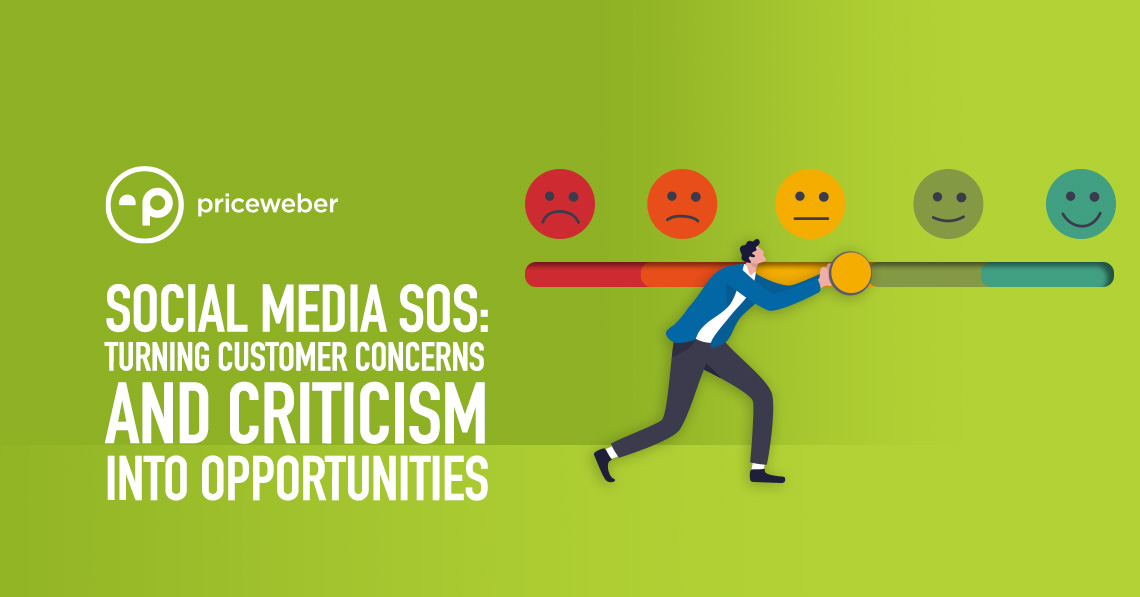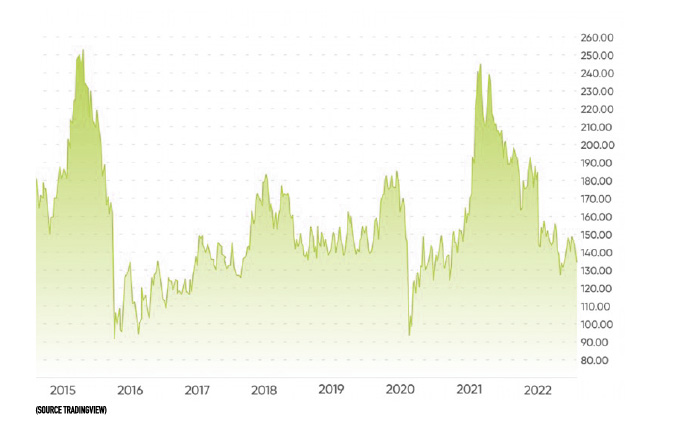For most of us, social media is an integral part of our daily lives, and it certainly plays a pivotal role in shaping public perception of brands and businesses. While positive feedback and glowing customer reviews can boost a company’s reputation, negative reviews and customer complaints can spread like wildfire and lead to a full-blown crisis.
Effective crisis management for social media reviews and customer complaints is crucial for preserving a brand’s image and ensuring its long-term success. In this edition of Plain Talk, we will examine the importance of crisis management for businesses when it comes to social media and discuss effective strategies to combat negative reviews with examples on both local and national levels. We may also uncover some valuable lessons.
The Importance of Social Media Crisis Management
Crisis management involves handling an unforeseen event that threatens to harm an organization’s reputation, operations, or bottom line. In the realm of social media reviews and customer complaints, a crisis can arise due to a single negative post, a viral complaint, or even a series of unhappy customers. Ignoring these issues or responding inappropriately can exacerbate the situation and cause irreparable damage to a brand’s image. Empathy and transparency go a long way with customers.
Volkswagon “Dieselgate”
One high-profile crisis in recent history was the Volkswagen emissions scandal in 2015. The car manufacturer was found to have installed software in its vehicles to cheat emissions tests, hiding the fact that its diesel cars emitted more pollutants than legally allowed. The news spread quickly on social media, leading to public outrage and lawsuits worldwide. Volkswagen’s initial response was vague and defensive, exacerbating the situation and contributing to a steep drop in Volkswagen stock.
(Source TradingView)
To recover, the company needed a comprehensive crisis management strategy. Volkswagen’s CEO issued a public apology and resigned, demonstrating accountability. The company recalled millions of affected vehicles, initiated an internal investigation, and fired several top executives. They also launched a massive PR campaign to rebuild trust and invest in cleaner technologies. Though it was a long and difficult road, Volkswagen’s crisis management efforts eventually led to a slow recovery of its reputation. It’s no coincidence that by 2021, stock prices had recovered fully to pre-Dieselgate levels.
Domino’s Pizza Employee Prank
In 2009, two Domino’s Pizza employees uploaded a video on YouTube showing them tampering with food, which went viral. The video triggered a major crisis for the company. Domino’s acted swiftly by identifying the employees, cooperating with law enforcement, and creating a response video from their CEO. They also utilized Twitter to communicate with their customers and address concerns, showing transparency and accountability. This proactive crisis management approach helped them mitigate the damage and regain customer trust. I had to read about this incident again to jog my memory. That tells me they did a great job handling the crisis.
United Airlines Breaks Guitars
In 2008, musician Dave Carroll’s guitar was damaged during a United Airlines flight. After months of fruitless communication with the airline, he released a music video titled “United Breaks Guitars.” The video went viral, garnering millions of views and exposing United Airlines’ poor customer service. The company’s initial dismissive response only fueled public outrage. United Airlines eventually changed its approach, but the incident had already inflicted significant damage to its reputation. The story was so big Carroll wrote a book about it.
Photo: Courtesy Amazon.com
How much did it cost United Airlines? It’s been widely reported that within four weeks of the video being posted, the airline company faced a significant loss of business, and its stock price took a nosedive, costing stockholders a staggering $180 million. This jarring financial blow underscores the critical need for businesses to prioritize customer service at all levels.
Cheeseburger Gone Wrong Post
On a smaller scale, I once stopped by a major fast-food chain with a colleague on our way to see a client. We only had about 30 minutes to spare for lunch. The experience began a bit strange when we were asked in the drive-thru if our order was “for here or to go?” Giggling, knowing they were probably busy and shorthanded, we placed two separate orders. As my co-worker opened the wrapper to his cheeseburger, he had an inverted bun with no hamburger, just a piece of cheese in the middle of upside-down buns. We were laughing so hard that we were crying. I snapped a photo and put it on the social media site formerly known as Twitter with the caption, “Was my order … cheeseburger, no burger, buns inside out?”
Connie Leonard (@ConnieLeonard) … Twitter
While I wasn’t trying to get a reaction out of the company and was just trying to be funny, it was clear where the burger was from. Less than an hour later, to my surprise, there was a bag full of cheeseburgers on my desk and about 10 free meal vouchers! I immediately posted a shot of the replacement meals on social media with the headline – “Now that’s customer service!” It got quite a few reactions. The restaurant chain’s local owners had a close eye on social media, made the wrong a right in record time, and their response paid off on several social media accounts I had with several thousand followers.
Key Strategies for Crisis Management
- Stay calm and objective: Businesses need to remain calm and objective when getting a negative review or customer complaint. Avoid responding defensively or emotionally, as this can escalate the situation further. Take a step back, evaluate the feedback, and gather all relevant information before crafting a well-thought-out response. Some crisis situations can be really stressful for staff – the Harambe tragedy comes to mind – so if you find yourself in a heavily emotionally charged crisis, consider bringing in outside help from a PR firm or consultant.
- Act promptly and genuinely: Respond to complaints and negative reviews as soon as possible, showing empathy, understanding, and concern for the customer’s experience.
- Be transparent and honest: Admit mistakes if they occur, take responsibility, and outline steps to rectify the situation.
- Choose the right platform: Respond to complaints publicly but avoid getting into heated exchanges. Move the conversation to private channels to resolve issues. Provide a direct contact email or phone number where the customer can reach your customer support team. This demonstrates your willingness to address the issue personalized and confidentially.
- Offer a solution: Provide a clear and practical solution to the customer’s problem. Whether it’s a refund, a replacement, or additional support, offering a resolution demonstrates that you value their satisfaction and are willing to make amends.
- Train your team: Equip your social media and customer service teams with proper training to handle a crisis calmly and professionally.
- Monitor and anticipate: Keep a close eye on social media conversations and anticipate potential issues before they escalate. You can use social listening tools to stay up-to-date on what customers say about your brand, helping you be prepared to respond swiftly to any negative feedback.
- Encourage positive reviews: Don’t shy away from encouraging satisfied customers to leave positive reviews on your social media platforms. Happy customers are often willing to share their experiences, which can help balance out the impact of negative reviews.
- Learn from feedback: Negative reviews can offer valuable insights into areas where your brand can improve. Use this feedback to identify weaknesses and continually implement necessary changes to enhance your products or services.
The Upside of a Downside
While negative reviews and customer complaints can present challenges, they also offer real opportunities for growth and improvement. By adopting a proactive approach and implementing effective crisis management strategies, businesses can turn negative reviews on social media into positive opportunities. By learning from past examples like Volkswagen, Domino’s Pizza, and United Airlines, businesses of any size can turn negative reviews on social media, like a cheeseburger gone wrong, into positive opportunities. Timely responses, transparency, and genuine customer concern are critical elements in successfully managing such situations and safeguarding a brand’s image. Embrace the power of social media to engage with customers and build lasting relationships that withstand the occasional storm of negative reviews.
If you are interested in ways your business or team can benefit from crisis communications in social media and media training, drop us a note or call us at 502-499-4209.
Connie Leonard is a Public Relations Manager at PriceWeber. The former Louisville Television Anchor is a 12-time Emmy award-winning reporter in News and Sports and an Edward R. Murrow Award recipient. She can be seen on true crime documentaries on Netflix, Discovery ID, and Oxygen.




